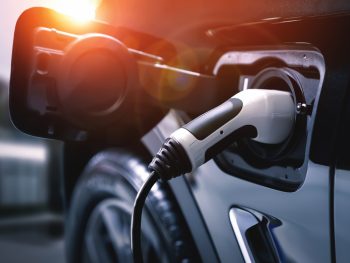Rocketing fleet demand fuels August new car market growth
Surging fleet registrations and EV demand pushed the new car market up 24.4% to 85,657 units in August.

Battery electric cars accounted for 20.1% of new cars reaching the road
Typically a quieter month ahead of the September plate change, August actually saw just under 17,000 extra units registered compared to the same month in 2022, ensuring the sector enters a second year of growth, although it still remains 7.5% below pre-pandemic levels.
Larger fleets were predominantly behind the rise; the new data from the Society of Motor Manufacturers and Traders (SMMT) shows such registrations were up 58.4% to 51,951 units, taking a 60.7% market share. Meanwhile, business registrations – classed as fleets with fewer than 25 vehicles – grew 39.4% to 1,635 units and with a 1.9% share. Combined, the figures show overall fleet registrations of all sizes were up 57.8% and with a 62.6% market share.
This compares to an 8.1% decline in private registrations, whose market share fell back to 37.4% as buyers delay new car purchases in the current economic conditions.
Demand for electric vehicles, including hybrids, continued to soar and they accounted for almost four in 10 (37.8%) new cars reaching the road.
Uptake of battery electric vehicles (BEVs) swelled by 72.3% to secure a 20.1% market share, the highest recorded since last December and an August record.
Plug-in hybrid uptake also rose significantly, up by 70.0%, to account for 7.7% of new registrations. Hybrid volumes remained relatively stable with a 6.8% increase, comprising 10.0% of the market.
Year to date, total registrations are up 20.0%, thanks to a 42.6% rise in large fleet registrations and 22.8% for business registrations, while private registrations have stayed relatively static, with just 0.9% growth.
Despite the August boost, the industry has warned that regulatory uncertainty threatens future ambitions. While there’s less than four months to go until the expected introduction of a ZEV mandate, final details of the regulation have not been announced – and the auto sector warns that the delay is putting decarbonisation goals at risk.
It’s also said that demand from both business and private consumers must be boosted still further if ambitions are to be met, but fiscal incentives are particularly needed for the latter.
Mike Hawes, SMMT chief executive, said: “With the automotive industry beginning a second year of growth, recovery is underway with EVs energising the market. But with a new ZEV mandate due to come into force in less than 120 days, manufacturers still await the details. Businesses cannot plan on the basis of consultations, they need certainty. And now, more than ever, government must match action to ambition, ensuring there are the incentives and infrastructure in place to convince drivers to make the switch.”
Jon Lawes, managing director at Novuna Vehicle Solutions, also called for urgent insights on the regulation.
“The priority now is for the Government to provide clarity on the ZEV mandate, to avoid stalling investment in charging infrastructure, and mitigate against potential supply issues if manufacturers impose caps on non EVs into the UK which could affect the wider economy, as consumers and the industry grapples with continued uncertainty.
“There is real support for the mandate across the industry, however the challenge is in the detail and with 2024 just around the corner, timing is everything.”
Nick Williams, managing director, Lex Autolease, also said the ZEV mandate would play a key role in mapping out the UK’s electric future.
“It’s essential that the responses are used to build a robust mandate that paves the way for further investment and innovation in EVs and makes the UK an attractive place for manufacturers to launch and sell the electric models that will help meet our net zero targets. It’s also the hope of the industry that the mandate is firmly backed up with essential investment in the charging infrastructure and continued financial incentives that will encourage consumers to opt for a lower emissions vehicle.”
Jamie Hamilton, automotive partner and head of electric vehicles, at Deloitte also called for charge point action.
“Right now, there needs to be a faster rollout of EV charging points. Continued improvement in the underlying infrastructure will be crucial if growth is to keep up with the rising thresholds for subsequent years.”
EV take-upnew car registrationsSociety of Motor Manufactures and Traders (SMMT)












